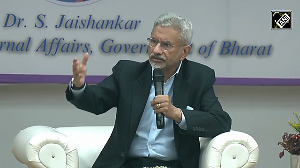The deadlock continues even as senior leaders of the region are expected to participate in the Saarc summit at Dhaka next week.
Government officials told Business Standard that a committee of experts would convene a meeting later this month at Kathmandu to sort out the issue.
The previous meeting of the committee in October ended in a deadlock with Bangladesh not agreeing to a proposal mooted by Pakistan.
The proposal suggested a cap on the compensation to be paid by India, Sri Lanka and Pakistan to the least developed countries in the region.
"Bangladesh did not agree to the proposal and suggested that the least developed countries be compensated not only for revenue loss, but also for the trade diversion arising on account of Safta," officials said.
To break the deadlock, India has proposed a more flexible compensation package, which is now expected to be tabled at the next meeting of the experts committee.
India has already offered to remove specific duties on 189 tariff lines pertaining to textiles and remove another 117 textile items from its sensitive list to boost exports from Pakistan and Bangladesh.
In addition, the commerce ministry has offered to allow import of 3 million garment pieces comprising shirts and trousers from least developed countries by fixing a tariff rate quota.
The quota will be on tariff lines, which are in India's sensitive list and utilised primarily by Bangladesh.
Officials said tariff quotas on fresh vegetables and fruits were also being worked out for Pakistan. Similarly, items like processed fruits, ceramics, leather footwear, voltage stabilisers were also being kept out of the sensitive list for Bangladesh.
There are four countries in the Saarc, which fall in the category of the least developed countries - Bangladesh, Bhutan, Maldives and Nepal. The non-LDCs comprising India and Pakistan will be required to reduce their tariffs to 0-5 per cent within seven years.
In addition to Safta, four other agreements will come into effect from January 1, 2006. These are mutual administrative assistance in customs matters, an agreement on promotion and protection of investments, agreement on establishment of Saarc arbitration council and Saarc arbitration rules, and an agreement on avoidance of double taxation.







 © 2025
© 2025